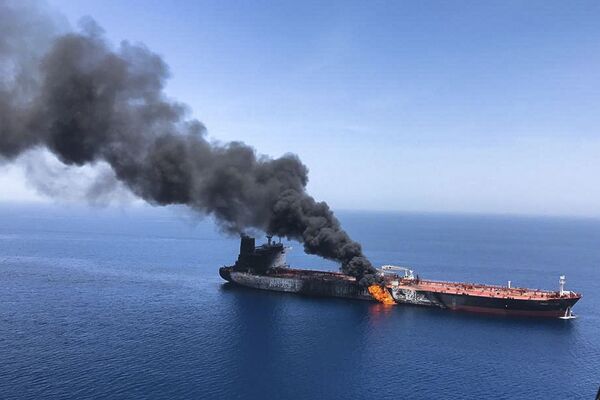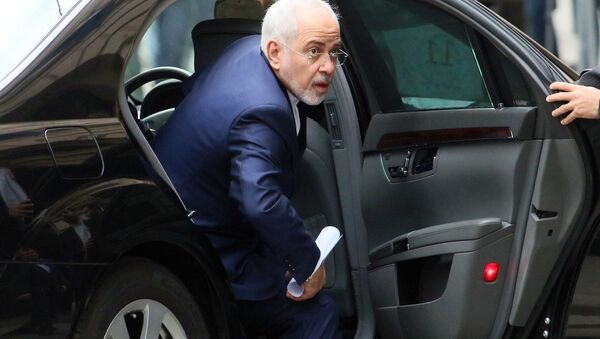Iran's top diplomat Mohammad Javad Zarif received an invitation to the White House last month as tensions between Tehran and Washington reached a fever pitch, The New Yorker reported, citing American and Iranian sources, as well as a "well-informed" diplomat.
The offer was reportedly made by Kentucky Senator Rand Paul after he had discussed the idea with President Donald Trump while the two were playing a round of golf in Virginia on 14 July.
The following day, Paul, who is on the Senate Foreign Relations Committee, allegedly met with Zarif in New York, at the residence of Iran's UN envoy, where he made the diplomatic overture.
According to the sources, the two discussed Iran's nuclear programme, the 2015 Joint Comprehensive Plan of Action (JCPOA), commonly known as the nuclear deal, and the escalation of the situation in the Persian Gulf following so-called "sabotage attacks" on oil tankers that Washington blamed on Tehran, and the Iranian shootdown of a US spy drone, which, per Tehran, violated Iranian airspace.

As the diplomatic crisis nearly turned into a military confrontation, with President Trump calling off an airstrike at the last minute, Paul ostensibly decided to work towards easing tensions.
The New Yorker further suggests that Zarif came up with a bunch of advice on how to break the impasse over the nuclear deal as well as how to handle some of POTUS' concerns. One of those supposed ideas was that Iran could legislate a 2003 and 2010 fatwa issued by the country's Supreme Leader Ayatollah Ali Khamenei that prohibits the production and use of nuclear weapons.
Another possibility reportedly consisted in ratifying the so-called Additional Protocol, which would allow inspectors to "conduct complementary access to any location in Iran". In exchange, the Iranian diplomat is said to have suggested that Trump should go to Congress to lift sanctions against the Islamic Republic.
Per anonymous sources, Paul proposed that Zarif lay out his thoughts to Trump in person, since POTUS had allegedly authorised the senator to invite the foreign minister for a meeting at the White House that week. However, Zarif reportdely replied that he could not make a unilateral decision to meet with the US president without consulting Tehran first, and purportedly expressed concern that the encounter would be more of a photo op.
The meeting never happened. Neither American, nor Iranian officials have commented on the report so far.
Tensions Running High
The story by The New Yorker comes a few days after the US Treasury Department introduced sanctions against Zarif in what Steven Mnuchin described as "a clear message" to Tehran that "its recent behaviour is completely unacceptable".
The Iranian foreign minister was quick to respond to the move, sarcastically thanking Washington for considering him such a "huge threat to [its] agenda".
The US' reason for designating me is that I am Iran's "primary spokesperson around the world"
— Javad Zarif (@JZarif) 31 июля 2019 г.
Is the truth really that painful?
It has no effect on me or my family, as I have no property or interests outside of Iran.
Thank you for considering me such a huge threat to your agenda.
The developments come as the US is pushing for "maximum pressure" on Iran and is lobbying European countries and other nations around the world to join its international maritime coalition against Tehran.
According to the plan, so-called Operation Sentinel is expected to operate in the Persian Gulf, in the Strait of Hormuz, in the Bab el-Mandeb Strait, and the Gulf of Oman to secure navigation routes in the wake of oil tanker incidents there. The alleged attacks were blamed on Tehran - something it has vehemently denied.
Relations between Washington and Tehran have been in a downward spiral since May 2018, when Donald Trump withdrew from the 2015 nuclear deal and reinstated all sanctions against the Islamic Republic. On the one-year anniversary of the unilateral US pullout from the agreement, Iran announced that it would suspend some of its voluntary commitments under the deal, but stressed that it is not interested in developing nuclear weapons.




